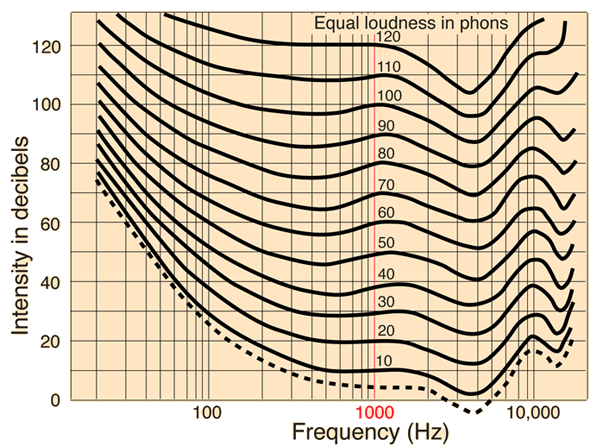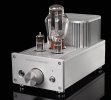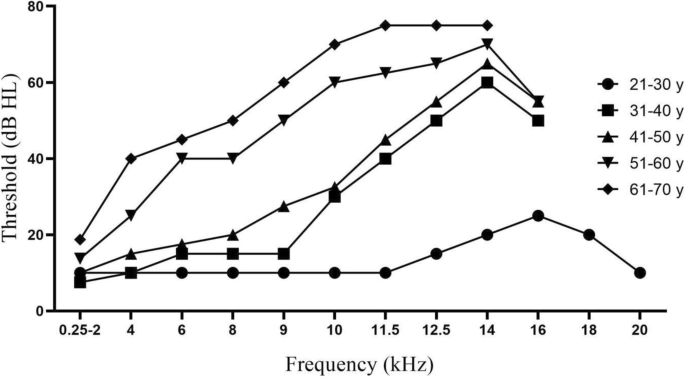"It's a known fact any male over 45-50 is incapable of hearing much over 8khz,"
That's wrong. Full stop. Easily debunked (as I just did).
It seems most of the people who posted afterwards agreed with me.
Like it or lump it.
Do you really want to disagree with a medical journal as serious as the Lancet?
I also agree about the headphones.
Unless you have a proper calibration standard and a DSP to correct the obvious and terrible non linearity of all headphones, it's still a lottery to get any serious hearing test at all.
(I use a DSP and known headphone characteristics to get somewhere close).
We then have to add in the good old human hearing curves (Fletcher - Munson, equal loudness...) which vary with intensity as well as frequency.
They are pretty non linear also.
ie. "The hearing curves show
a significant dip in the range 2000-5000 Hz with a peak sensitivity around 3500 -4000 Hz. This is associated with the resonance of the auditory canal."
You stated you kept the level low in your test, (also using low grade tranducers) which of course means the test produces an even greater dip of probably around another -18dB SPL between 5khz-10khz as shown above.
If we add a hearing aging loss of -20dB at your age to the -18dB above we get a combined loss of acuity of close to -40dB. This very high.
(Please not this is not adhominem, it's just being objective as an example)
Because a girl of 12 - 17yrs old might hear these levels at the threshold of pain, (and I have done those tests with my Russian daughters briefly) it proves my statements pretty conclusively why any man over the age of 40-50 would be claiming to hear things they can't.
(I have to add Dr Tomatis held the view, that Russian language has the greatest variation in frequency during speech tests, so it's likely someone who uses it, has a better audition via training than most, but that's another story...Tomatis' work in psychology and hearing is very famous.)
"
Tomatis Listening Therapy has shown to substantially improve auditory processing difficulties, by ameliorating auditory sequential memory difficulties, the ability to distinguish speech against a variety of background noises, as well as assisting in the acquisition of phonemic discrimination and phonological awareness."
Which of course brings me back to the old thing about masking effects increase as age increases, and only a certain amount of training can make up for the deficiencies.
I do find it fascinating in blind testing, some so called "hi end" (male) audiophiles actually prefered mp3 of live music we had recorded to the original 24bit audio.
The only explanation I could find is they really couldn't hear the difference when you added back "richness" in the music, and that is probably why they liked their 'orrible distorting Jadis amps, and I don't.




